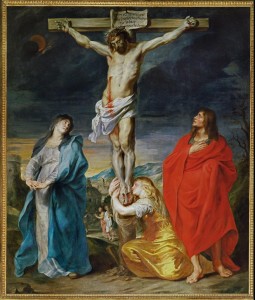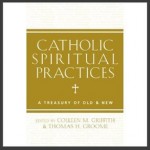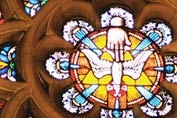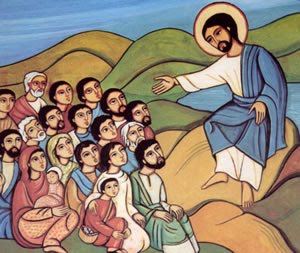 The Passion Story refers to the stories in the Gospels that describe Jesus’ final days. They are a description of the arrest, trial, torture, and death of Jesus at the hands of the Jewish and Roman authorities. Because Christians believe that Jesus died for our sins and that he rose from the dead, this Passion story, along with the Resurrection story, form the centerpiece of the Christian religion.
The Passion Story refers to the stories in the Gospels that describe Jesus’ final days. They are a description of the arrest, trial, torture, and death of Jesus at the hands of the Jewish and Roman authorities. Because Christians believe that Jesus died for our sins and that he rose from the dead, this Passion story, along with the Resurrection story, form the centerpiece of the Christian religion.
All four of the Gospels tell the same basic story. Jesus, even though he knew that the Jewish authorities were looking for a reason to arrest him, decided to go to Jerusalem with his disciples to celebrate the Jewish feast of Passover. After celebrating this ritual holiday meal with his closest friends, Jesus went out to pray. While he was praying, the Temple guards who had been tipped off as to Jesus’ whereabouts by Judas, one of Jesus’ closest followers, arrested him. When he was arrested, he was charged by the Jewish authorities with the crime of blasphemy, claiming for oneself characteristics that can only belong to God. The very night of his arrest, Jesus was taken before the Sanhedrin, the Jewish ruling council. The Sanhedrin called witnesses to prove Jesus’ blasphemy and, although the witnesses and their testimony were somewhat weak, they convicted Jesus of the crime. According to Jewish law, the punishment for the crime of blasphemy was death. However, the Jews were no longer able to sentence people to death; only the Romans can do that. The Sanhedrin, therefore, sent Jesus to the Roman governor under the charge of treason, threatening to take over the power that belongs to the government. After a series of interviews, the Roman governor, Pontius Pilate, agreed to sentence Jesus to death for treason, claiming to be the king of the Jews. The form of execution was to be crucifixion.
Crucifixion was one of the many forms of execution that was used by the Romans. Usually reserved for lower class people (upper class citizens were usually given the option of committing suicide or of being beheaded), crucifixion was one of the most painful ways to die. Despite being excruciatingly painful, it was not designed to kill a person. A person who was crucified eventually died of suffocation as they weakened due to the pain and blood loss caused by the crucifixion. This slow exhaustion and suffocation could take up to three days. However, the Gospel accounts suggest that Jesus died three hours after having been nailed to the cross, which is a much shorter time than would have been usual. Since he died relatively quickly, his family was able to have his body removed from the cross and placed in a tomb before sunset. The Sabbath begins at sundown on Friday and no work can be done during this time, including the burying of the dead. If Jesus had not been put in the tomb before sunset, his body would have had to remain on the cross until the end of the Sabbath observances, probably until Sunday morning. As it was, Jesus’ family and friends did not have enough time to completely prepare his body for burial. So they had to make do with wrapping him in the burial cloths and they made plans to return after the Sabbath to anoint his body with oils and spices as was the custom.
Jesus’ Resurrection from the dead on the third day after his crucifixion is the central event of Christianity. Without the Resurrection, Jesus was just another wandering preacher-healer who was killed by the Romans. It is the Resurrection that proved to the early disciples that Jesus was the promised Messiah and the Son of God.
No one knows how Jesus rose from the dead; no one was there to witness it. However, the Gospels agree that, when the women went to the tomb to anoint his body with oils and spices, they discovered that the tomb was empty. The traditional story of the early church attributes this first discovery and explanation to the apostles to Mary Magdalene, who is often called the Apostle to the Apostles, the one who carried the good news of the resurrection to those who became responsible for the preaching of that good news.
The Gospels also tell us that Jesus appeared to various of his followers in the few weeks after his resurrection. He continued to teach them and he shared meals with them. These stories are called the Appearance Narratives. Several weeks after the Resurrection, Jesus stopped appearing to his disciples and the Gospels and the Acts of the Apostles tell us that he ascended into heaven.
Because of the Resurrection, the disciples were empowered to start spreading the news that Jesus, who had been crucified by the Romans, was in fact alive again. In addition to preaching the message that Jesus himself had preached – of God’s love and the coming of God’s reign, the early church began preaching this good news of Jesus’ Resurrection. And, over time, they also came to understand that Jesus’ Resurrection and Ascension meant that Jesus was the Christ – the anointed one of God – and God’s Son. In the next posting, we will explore some of these key beliefs about Jesus.
 We gather together at 6:30 p.m. in our Church Social Hall to continue this year’s journey: Pondering Grace through the Lens of Love. Bring your favorite Winter recipe for a fabulous potluck!
We gather together at 6:30 p.m. in our Church Social Hall to continue this year’s journey: Pondering Grace through the Lens of Love. Bring your favorite Winter recipe for a fabulous potluck!





